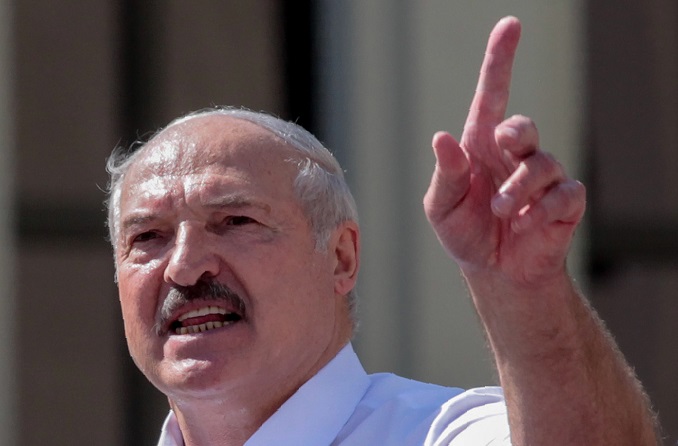Former Belarusian presidential candidate Svetlana Tikhanovskaya, now exiled in the EU, called a nationwide strike Monday after long-time leader Alexander Lukashenko refused to step down following an ultimatum from the opposition, RT informed.
The measure finally brings things to a head after months of protest and will be seen as a litmus test for the anti-Lukashenko coalition’s attempt to force a transfer of power. Should the strike action fail to take hold, it will be seen as a victory for the incumbent, but if it gains momentum, then all bets are off.
On Monday morning, opposition-leaning media reported that multiple large businesses throughout the country had ceased working. This was denied by the government, which claimed that key enterprises are “operating normally” and “production has not been stopped.”
On October 13, in what she called the ‘People’s Ultimatum’, Tikhanovskaya demanded the president’s resignation, as well as an end to violence against protesters, and the release of those considered to be political prisoners.
Writing on her Telegram channel, Tikhanovskaya announced on Monday morning that the deadline had passed, and the general strike was to begin.
“Belarusians know that, on October 26, the main job is to show that no one will work for the regime,” she wrote. “They are risking their personal freedom today so that we can achieve freedom for our country.”
According to the most popular opposition Telegram channel, the Polish-based NEXTA Live which has almost two million subscribers, reports of strikes have come from many large factories including the Minsk Tractor Works (MTZ), Minsk Wheel Tractor Plant (MZKT), and Minsk Automobile Plant (MAZ).
Early on Monday morning, Euradio reported that police detained workers at Grodno Azot, a chemical plant near the border with Poland.
However, according to Moscow-based news agency RIA, Belarus’ production and business sectors are working normally.
The unrest in Belarus began on August 9, after the county’s presidential election. After the closure of polling stations, and the publication of an exit poll, mass protests began against the falsification of results. According to the Central Election Committee, incumbent President Lukashenko received 80.10 percent of the vote, with opposition candidate Tikhanovskaya receiving just 10.12 percent. During days of protests, police and internal troops used tear gas, stun grenades, and rubber bullets to disperse protesters.












